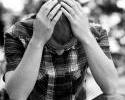Obsessive-Compulsive Disorder Takes Many Forms
What is Compulsive Hoarding?
OCD hoarding is considered a type of obsessive-compulsive disorder (OCD). This behavior, also called "pathological collecting," involves acquiring and saving many objects that may seem useless or of no value. It is not uncommon for people with OCD hoarding to completely fill their homes with clutter so that the living space is unusable. Early psychoanalysts considered hoarding a sign of "anal" character traits because of the withholding nature of the behavior.
Hoarding can be a symptom of problems other than OCD, including mental decline in the elderly, mental retardation, schizophrenia, or even eating disorders (hoarding food). However, hoarding appears to be most common in the context of OCD, and it is found in about a quarter of the people diagnosed with the disorder. OCD hoarding is a compulsion that results from excessive concerns that certain objects cannot be discarded because they might be needed later. It may also involve excessive acquiring, such as compulsive shopping, extreme collecting, or acquisition of free things (e.g., free newspapers, pens, junk mail). Hoarding can be a result of severe indecisiveness over what items should be kept versus discarded; the hoarder simply cannot decide, so decision is avoided and all is kept. Hoarders also have difficulty figuring out how to best organize those items which are kept; as a result, the hoarder amasses piles of disorganized objects.
OCD Hoarding Can Be a Serious Problem
Hoarders may be called "pack rats" by others. The hoarder's social life may suffer because of fears and embarrassment concerning the state of the hoarder's living space. Hoarding behavior may extend to the person's office or vehicle. In some cases, OCD hoarding may not be brought to the attention of mental health professionals until the local fire marshall has declared the hoarder's home a health hazard. In at least one situation, a hoarder rented a second apartment to live in because his own apartment was too full to belongings to function as a living space.
Special Problems for Hoarders
Hoarders seem to have a unique set of difficulties compared to others. They tend to be more perfectionistic and indecisive. They have more severe levels of OCD symptoms and more additional psychiatric disorders. Hoarders may be more likely to have saving and symmetry obsessions. The compulsions involve not only hoarding, but possibly ordering, counting, and repeating compulsions. Hoarders are more likely to have personality disorders, especially obsessive-compulsive personality disorder and avoidant personality disorder, a condition similar to social phobia. Not surprisingly, they are more likely to remain single. In addition, more hoarders have close relatives whom they also describe as pack rats.
OCD hoarding seems to be more common in males than females. Hoarders typically have an earlier age of onset of OCD symptoms, and the symptoms are more severe. Hoarders also have more abnormal grooming behaviors, such as skin picking, nail biting, and trichotillomania (compulsive hair-pulling).
There has been some discussion among researchers that perhaps hoarding is not actually a form of OCD, but rather a clinically distinct syndrome that is part of the OC spectrum of disorders.
OCD Hoarding Treatment is Not Easy
One particularly challenging aspect of compulsive hoarding is that hoarders often do not recognize they are impaired. Most cases of hoarding that result in professional attention occur at the request of concerned family members, landlords, or even the legal system. Hoarders have surprisingly little insight into the potentially dangerous nature of their hoarding behavior. They may even experience their hoarding as sensible and beneficial.
It does seem that patients with hoarding symptoms are less responsive to conventional treatments for OCD, such as medication and cognitive-behavior therapy. Compared to people with other forms of OCD, hoarders tend to experience more anxiety and depression and experience greater social dysfunction.
It could be that treatment of OCD patients with hoarding symptoms is complicated by the fact that the OCD is more severe and the presence of co-occurring disorders. Nevertheless, improvement is possible using a flexible approach, with treatment carefully tailored to the patient's specific symptoms.
Go to BrainPhysics OCD page...
Disclaimer: This information should not be considered medical advice and should not substitute the judgment of a competent psychiatrist.
Credits: Article written by M. Williams, Ph.D.
Source: J Samuels, OJ Bienvenu, MA Riddle. (2000). Behaviour Research and Therapy. 40(5): 517-528.





